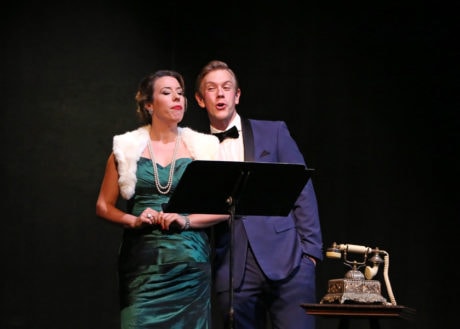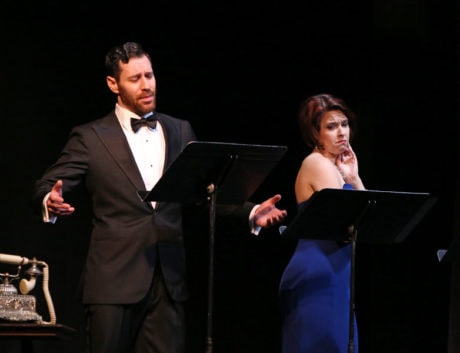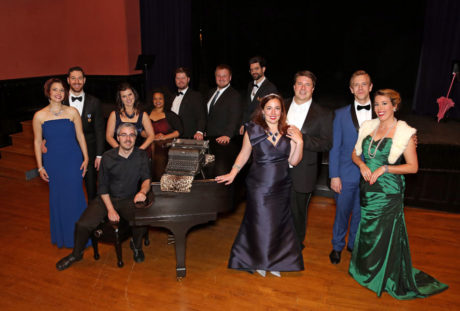Leo Fall’s music is not likely to return to Broadway. It did, however, provide pleasant vocal opportunities for gifted young singers of the Concert Operetta Theater in Philadelphia this weekend, along with nostalgia for a way of life that vanished a century ago.

The mundane sound of his name is misleading: Fall’s family was Moravian-Jewish and he was a musician in Germany before he settled in Vienna in 1906. There he competed with the illustrious Franz Lehár in the composition of romantic light operas, or operettas. Fall’s most popular works were translated into English and were produced in New York and London. The Dollar Princess had a successful run on Broadway in 1909 and 1910.
In Edwardian Britain, “Dollar Princess” was the nickname given to rich American women who wanted to marry European royalty in order to flourish a title. They achieved matches with nobles who had long family histories but were short of cash. This was, after all, an era where fortunes were being made in North America in oil, coal, steel and railroads, more so than in Europe.
In this story, an American girl, the daughter of the president of the Coal Trust, tries to hitch up with a young Englishman. Meanwhile, her millionaire father hires impoverished nobles as his servants. He has an affair with a supposed countess who is actually a Russian lion tamer.
The subject matter is less compelling than the Lehár and Kálmán operettas which dwelt on the European monarchies and enabled listeners to dream about the glamor of that time. It’s extremely lightweight fluff which we can hardly take seriously. But we can enjoy the period music — the waltzes and the fox trots — and the skill of the performers.

Daniel Pantano, the founder and artistic director of Concert Operetta Theater, assembled an attractive cast. Jeffrey Chapman was a charismatic presence as the father, Harry Conder. Brett Pardue revealed matinee-idol looks and personality as the blonde male suitor, Freddy Fairfax, and both of them sang attractively. JoAna Rusche, an experienced opera soprano at the Academy of Vocal Arts, excelled in the challenging role of the imperious and sometimes-rude “Dollar Princess” Alice.
Marcelle McGuirk was the charming Cousin Daisy; Mark Tempesta was an amusing John, the Earl of Quorn; and Emily Byrne was the lion “queen”—all in their company debuts. Andrew Shaw, Christina Chenes, Corey Bonar, Robert Davidson and Elise Bjordammen completed the cast.
Gabriel Rebolla, an experienced opera coach and piano professor, was the music director/pianist. The company specializes in simplified stagings with minimal accompaniment as it emphasizes the music and contemporary style of the original operettas. Pantano has dedicated himself to preserving this neglected art form and educating audiences about operetta through professional performances.
Fall died in 1925 of cancer at the age of 52. The most notable of the stage works which he created were Die Rose von Stambul (Vienna, 1916) and Madame Pompadour (Berlin, 1922), which had successful runs in London and New York and remained in the repertory in Europe for much of the 20th century.
Running Time: Two hours and 15 minutes, with one intermission.

The Dollar Princess was presented on May 20 & 21, 2017, by Concert Operetta Theater, performing at the Helen Corning Warden Theater of the Academy of Vocal Arts – 1920 Spruce Street, in Philadelphia, PA. For tickets to future shows, call (215) 389-0648, or purchase them online.




